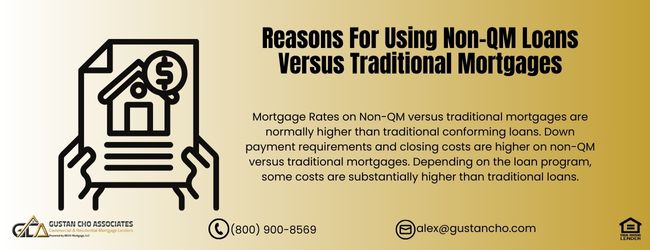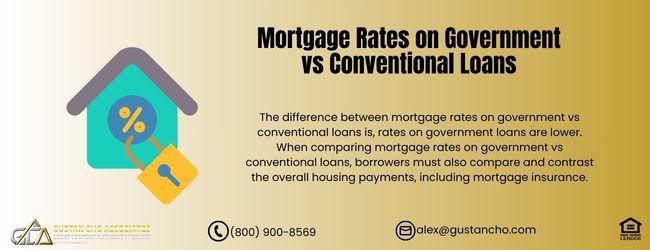Investing in Rental Properties With Hard Money Loans

Ultimate Guide of Hard Money Loans for Rental Property Investment
Understanding Hard Money Loans
GCA Forums Mortgage Group offers hard money loans to real estate investors. Hard money loans are for investment and commercial properties. You cannot have hard money loans for primary owner occupant properties due to mortgage regulations.
Definition and Concepts:
Hard money loans are financing from private individuals or small firms rather than larger institutions. These loans are secured against the property, and the loan amount is usually offered based on the property’s value or what it could be valued at post improvements, not the borrower’s credit history.
Key Characteristics of Hard Money Loans
- Interest rates: 7-15% annually, considerably over traditional financing
- Points (origination fees): Usually 2-5% of the total loan amount
- Loan to value, LTV ratio: 65-75% in most cases. Some lenders could go as far as 80%
- Loan to cost, LTC ratio: Usually 80-90% of purchase plus renovation costs
- Term length: 6-36 months (1-3 years)
- Repayment style: Typically interest-only payments with a balloon payment at term-end.
- Closing speed: Can fund in 3-15 days. Loans take 30-60 days for conventional loans
- Documentation needed: Less stringent than traditional loans
Subclass of Hard Money Loans for Rental Properties
Bridge Loans
These loans are intended to provide gap funding until longer-term financing is established. For example, when acquiring a property that needs extensive renovation before it can qualify for conventional financing.
Fix-and-Flip to Rental Conversions
Set up as a fix-and-flip loan first, then switch to a rental property post-rehabilitation. Some lenders have particular programs tailored to this approach.
Rental Property Hard Money Loans
Some hard money lenders will grant rental property loans with terms of 3 to 5 years. However, these are costlier than traditional loans.
Strategy Hard Money Loans
Loans customized for the Buy, Rehab, Rent, Refinance, and Repeat strategy with timely refinancing based on value-added enhancements necessary before refinancing.
Portfolio Hard Money Loans
Loans are geared to investors buying multiple properties simultaneously and consolidating many rental properties into one loan.
Flexible Approval: No traditional income or credit verification—qualify based on the property value
Apply Now And Get recommendations From Loan Experts
The Process of Loan Application and Its Approval
All Required Documentations
- Information relevant to the property, as well as purchase details
- If necessary, the renovation budget and Schedule for completion
- Benched rental income estimates
- General, less detailed, personal financial information
- Operational plan or exit plan/buyout strategy
- (buying through LLC): Organizational documentation
Factors Underwriting Requires
- Value of property: Present-day / Market Current Condition of Property value and Repair Valuation (ARV)
- Location: Strength of property’s market in its vicinity as well as value/revenue potential from rental
- Renovation plan: Feasibility study and predicted timeline
- Strategic exit: Refinance strategy or selling potential plans
- Level of expertise: Prior experience with real estate investments
- Cash reserves: Having covered the required payments during renovation, leasing, and when the property is being made ready for the rental market
Due Diligence Period
- Inspection of the property
- Title requirements checks
- Necessary payments
- Appraisal or broker opinion on the market value of property (BPO)
- Verification of the entity, if needed
- Financial assessment and considerations
- Vertical charge breakdown
Cost Structure Summary
- Loan interest (7-15%)
- Loan points/set-up fee (2-5% )
- Processing Charges ($500 – $1,500)
- Underwriting Charges (($500 – $1,000)
- Inspection assessment fees ($300 – $500)
- Title insurance and escrow dividers (location dependent)
- Legal work for sales documents for the loan ($500 — $2,000)
- Analysis of cash flow
- Spending survey
- Estimates for primary (conventional) mortgage payment monthly ($more expensive than standard loans)
- Retain (DSCR)
- Impact on return on investment (ROIC)
- Recovering expenditures based on the number of vacant units and upkeep
- Estimates ROI Add higher costs incurred through loan financing and assess overall return value.
- Evaluate the impact of interest-only repayment terms on cash flows
- Factors including payment over time, yield, and interest over the other borrowing are the factors driving MoneyAnalyzing scenarios of hard money versus traditional financing side by side
Strategic Uses for Investors in Rental Properties
- Implementation of the BR Strategy
- Buy: Acquire distressed properties through hard money loans.
- Rehab: Repair for greater value and rental income
- Rent: Rent out to qualified tenants
- Refinance: Change to conventional financing from hard money.
- Repeat: Spend extracted capital on the subsequent acquisition.
Value-Add Possibilities
- Purchasing properties needing repairs that conventional lenders would not finance.
- Increasing rental income by adding units or amenities.
- Changing commercial or multi-family buildings to residential rental use.
- Improving poorly managed properties so that they can be rented at higher rates.
Expansion of Portfolio
- Obtaining several properties quickly through hard money.
- Refinancing using staggered refinances to maximize terms and achieve conventional financing.
- Accelerating the growth of a rental portfolio beyond what would be possible with traditional financing.
Distressed Property Acquisition
- Buying REO (bank-owned) properties
- Purchasing at foreclosure auctions
- Purchasing tax-delinquent properties
- Targeting estate sales that need quick closings
Exit Strategy Options
- Refinancing: Conventional loans
- Requirements for successful refinancing
- Seasoning periods (usually range between six to twelve months)
- Required documentation for rental history
- Debt service coverage ratio (usually 1.25 or more)
- Appraisal details
Portfolio Loans
- Composite mortgages for commercial properties
- Obtain low-end bank mortgage portfolio items
- Property investment credit union programs
- Privately banked products for high-net-worth investors
Seller Financing Agreements
- Moving from hard money to seller financing
- Formulating convenient terms
- Legal concerns and paperwork
Providing Hard Money Loans For A Longer period
- Resolving has become longer-term financing for found private money partners negotiating better payments.
- Finding long-term private money partners win-win payment
- Risk control and risk transfer
- Assessing prepayment
- Evaluating penalties associated with prepayments
- Assessing costs associated with early refinancing
- Negotiating more advantageous prepayment arrangements
Extension Options
- Grafting original terms into base proposing loan extension provisions
- Costs associated with extensions (generally 0.5-2 points)
- Factors qualifying under extensions
Default
- Comprehending underway foreclosure for defaulted hard money loans
- Negotiating collapse options of deal if project slips on timelines
- Cultivating lender relationship cap
Lender Insurance on Hard Money Loans
- Liability Construction
- General construction coverage builder risk policies during renovation
- Advanced owner-occupied properties require more coverage insurance.
- Shift from insured to constructed risk cover policies.
Locating and Apprehending Hard Money Loans
- Networking and Applying Online Marketplaces
- Real investment-oriented networks recommended by estate mortgage brokers, attorneys, or title companies
- Industry conferences and networking experts
- Conducting thorough background checks on lenders
- Cross-checking provided references with past borrowers.
- Evaluating underwritten loan documents
- Analyzing the lender’s historical foreclosure actions
- Validating funding support for sizable undertakings
Key Negotiation Factors on Hard Money Loans
- Setbacks Schedule for drawing funds reserved over renovations supervised by guaranteed
- Withdrawing distance assembly of direct
- Outline discussing points and interest rates.
- Terms of loan renewals of the extendable suspension clause
- Prepayment penalization rate and points
Legal Structuring of Entities and Tax Factors
- Wholly owned limited liability company from rental contracts of realty borrowing hard money is less complex.
- Strategic Asset Safeguarding
- Risks of Cross-Collateralization
- Tax Consequences
- Interest deductibility considerations
- Tax treatment of points and fees
- Cost segregation benefits
- Compatibility with 1031 Exchange
- Regulatory Compliance
- Regulated state lending policies
- Wage cap laws and their allowances
- Dodd-Frank Act’s impact on seller financing
- Licensing obligations for routine lending activities
Common Problems and Strategies to Address Them
- Underestimating Renovation Costs
- Establishing all-inclusive contingency budgets for comprehensive renovation plans
- Including carrying costs mid-renovation and post-lease-up
- Accounting for all fees and costs associated with closing transactions
- Preparing for potential fluctuations within market trends
Management of Time Constraints
- Setting realistic timeframes to complete renovate properties
- Awareness of local timeframe concerning issuance of permits for construction works
- Inclusion of buffers for contractor overruns
- Seasonal impact on construction timelines
Challenges Faced When Attempting To Refinance
- Valuation issues related to Loan to Value ratio and Appraisal metrics
- Losing the market value of the property due to changing guidelines for lending
- Modification of policies set by the lender concerning loan documents and property ownership
- Requirement of additional paperwork proving rental income
- Document changes to property value over time after an external party completes the analysis.
- Policies set by institutional creditors governing lending relationships
- Communication etiquette
- Professional management of fund withdrawal requests
- Record all forms of communication
- Maintain relationships with lenders and other parties to secure future transactions.
Schematic Illustrations and Examples
- Implementations Cases of Revisiting Renovation Real Estate Strategies for Yielded Cash Flow
- Portfolio expansion case studies involving hard money loans
- Transformations of rental properties boasting competitive valuation adds.
- Success stories revolving around specific markets
Challenge Scenarios
- Possible budget exceedance and adding value while renovating properties
- Changes within the rental market and a decrease in refinancing options
- Complications associated with securing tenants
- Challenges with construction that require alternative solutions
- Specialized rentals expect a boom in soft funding; however, most lenders won’t guarantee refinance buybacks depending on strategically integrating technology renting with an application process through the web.
- Online viewing of properties
Syndicated Loans
- Self-Directed Retirement Accounts (SDIRAs)
- Documenting loans using Blockchain and smart contracts
- Revolving capitalization
- Smart money paired with traditional financial products
- Changes in competitive market interest rates influence terms and conditions.
- Increasing the duration of hard loan funding
- Enterprises investing in hard money loans
- Rival forces impacting the interest and pricing structure
- This document explains the use of hard money loans when acquiring rental properties.
Short-term financing that gives you the flexibility to refinance or sell at your convenience
Apply Now And Get recommendations From Loan Experts






Responses